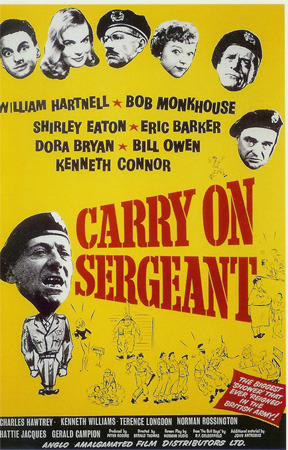Thomas E. Ricks's Blog, page 56
March 17, 2014
OK, I have had it with the moral posturing of Glenn Greenwald and Edward Snowden

On Saturday I
invited Glenn Greenwald via Twitter to comment on the recent
behavior of Russian leader Vladimir Putin.
He responded with a
note that invited me to denounce Peruvian police corruption and American drone
strikes that kill innocents. (I'd quote the note but it appears to have been
deleted.) On Sunday I did, and repeated my invitation to do the right thing
about Russia. You know, speak truth to power and all that.
Still waiting.
He did mockingly tweet this morning, "Has Snowden
condemned the earthquake in LA yet?"
His point being, I
suppose, that Greenwald and Snowden are not required to comment on all events.
My point being that the LA earthquake has not enabled Snowden's actions.
Bottom line: I am no
longer going soft on Greenwald and Snowden. In fact, rather the opposite, I am beginning
to believe the worst about them. If they acting on moral beliefs, now would be
the time for both of them to speak out against Putin. It could have a great
impact, I think.
3 questions from Steve Coll about the CIA, the Congress, and the American people

They all
turn on the issue of the health of our system of representative
government:
Can the C.I.A., after a decade of fat budgets and swaggering
prerogative, adjust to emboldened congressional oversight? Can Congress provide
such oversight? And can the American people at last have the facts about the
Bush Administration's embrace of torture as national policy, carried out in
their name?
The Future of War essays (no. 18): Who cares about 'the future of war'? We should be thinking about the future of victory!

By Kevin Black
Best Defense future of war contest entry
What is the future of
war? My response: Who cares? I mean,
what good are the tools and methods of war when we don't understand its nature
in the first place?
Our country, with its
unmatched military might and sophistication, has the capabilities to destroy
any country, any coalition, and indeed, the world multiple times over. And at
the same time, everyone knows we will never unleash our full military potential.
When exactly was the
last time we decisively won a war? Too far to think back? Isn't our military,
the spiritual descendants of Chesty Puller and of Curtis LeMay, made up of the
best trained killers in the world? Well, the USMC recruiting commercial showing
the Marine working hard to pass out food packages like a Peace Corps worker
suggests otherwise.
Our logic of warmaking
is breathtakingly backwards. Nukes, weapons which assure the complete
destruction of an enemy army or state in a moment, and which also make standing
armies unnecessary, are too politically taboo to discuss. Drones and special
operators, excellent accessories to conventional forces, are now our most
cherished combat assets. And arguably the greatest danger on the battlefield is
our rules of engagement. We actually imprison our soldiers for fulfilling their
roles as soldiers. This is not only insane, this is our nation's military
policy!
How did this sad state
of affairs come about? They are many explanations, all of which are probably
prefaced by "Well, it's complicated..." I'm convinced there is an answer and that
it is obvious. Our policymakers and military leadership do not understand the
nature of war with all its implications.
War begins with policy, first and foremost. Here at the most strategic
level of operations, the aims, the goals, and the tone of fighting is set. "War
is the continuation of politics," wrote Clausewitz, meaning that the state uses
war as a means to impose its will on another for political ends. Not all wars
are equal in ferocity; their scope and scale are determined by the political
goals that drive them.
What is war? In
Clausewitzian thought, it is an episode characterized by pure, adulterated
violence and hatred. Think of war as a Platonic Form. What
actualizes or dilutes its potential are the biases and values of the
politicians who set the political goals. According to Clausewitz, he who brings
war closest to its ideal has the best chance of success. Total war becomes the
obvious assurance of ultimate military success.
Victory must be
decisive and complete, your enemy must unconditionally submit to your will. The
utter destruction of the enemy army, or even their nation, which might include
every man, woman, and child, must be your exclusive aim. Then, and only then,
will your enemy understand your resolve and potentially yield. Failure to
implement war in these total terms, however, invites continued or future
resistance, resulting unnecessarily in costs in men and national treasure.
To recognize war's
nature, and then to act on it, requires enormous willpower of the people who
wage it. Most of all, it takes moral certitude: the absolute conviction of the
righteousness of one's cause. Only then will a people freely endure the social
deprivations that follow.
This "extreme" view
of war, i.e. its most consistent form, is the only prescription for political
success. History concurs. For example, the Civil War's outcome can be
rightfully ascribed to Grant and Sherman's unyielding determination to force
the South to submit. World War II was won in four years. In both cases, entire
strategic arsenals were utilized unapologetically. The results were that the
conflicts were resolved permanently and long-lasting peaces ensued.
The modernist
response to this approach is abhorrence. Aren't we too civilized for something
so barbaric? If civilized means enduring more pain rather than inflicting it on
our enemies, then yes. "These principles seem
to me to have made men feeble," Machiavelli remarked in his Discorsi,
on the impact of Christian morals to warfare in contrast to Greek and Roman
predecessors, "...seeing that the great body of men, for the sake of gaining
Paradise, are more disposed to endure injuries than to avenge them."
So how did we get into
multiple wars without actually winning them? The root cause can be found in our
culture's "philosophy," or the way Americans interpret the world and our place
in it. Step into a college liberal arts classroom and chances are you'll see
we've abandoned our Enlightenment roots, mental and spiritual. Aristotelian
logic has been replaced with subjectivist language parsing. Critical thinking has
been subverted with the post-modern certitude that we can't be certain of
anything. The challenges of long-range thinking are disregarded for the instant
gratification of our emotional whims.
Military leadership is
of course affected. An overriding emphasis on analysis and tactics has
completely overshadowed its counterparts, synthesis and strategy. The
short-range fight, not the long-range struggle, has become our focus.
Maharbal's critique of Hannibal easily applies today to our national leadership,
"you know how to gain a victory; you do not know how to use it."
In terms of ethics,
we've forsaken the moral prerogative to defend ourselves with all means
available. Instead we've adopted the morally obscene "Just War" theory -- a
religious guide that ultimately protects our enemies from our full wrath. The
fact is we have become a people that "want to eat our cake and have it too." To
borrow Ayn Rand's quip about the modern mind, "blank out" has become our
intellectual modus operandi. We want
to kill our enemies at arm's length and imagine there are no long-term
consequences. We want to pretend that drones and special forces are too precise
to be significant, that a real state of war does not exist between us and the
rogue nations that sponsor the insurgents we fight.
"How's that working for
you?" to quote our most celebrated modern intellectual, Dr.
Phil. A
weaker United States is the result. Clausewitz's take on the relationship
between the offense and the defense is instructive here: The longer a war is
waged without decisive victory, the weaker the attacker becomes and the
stronger the defender. Since 9/11, our enemies have multiplied exponentially. The
astute Michael Scheuer recommends a simple test to measure our military
progress: Compare terrorist footprints using a pre-9/11 world map with one from
today.
The ripple effect of
our indecisive wars undermines our domestic harmony. Think the TSA is going
away soon? Expect greater intrusions into your privacy the longer our enemies
are allowed to roam about. Will a rogue state be attacked if it shelters a
motley gang of Middle Eastern Pancho Villas? That justification was invalidated
with the Iraq War II debacle.
What about the increase
in big government in our daily lives? Madison's observation that standing armies are dangerous to the
liberties of a free country is becoming more prescient every day. Now, however,
standing armies have become militarized police forces in our local communities.
What can we do as
Americans? I see two alternatives.
The first is to
withdraw from the world stage. This will at least, and for the short-term, give
an illusion of safety. We can increasingly become a nation under siege. Incidentally,
our eroding position in the world today suggests we as a people have chosen
this approach.
The more difficult
alternative, the one that could make this country powerful again, requires a
major cultural awakening. We must return to the American philosophy of life
that made this country great. What we need now is what Nietzsche called a
complete "transvaluation of
values,"
and indeed, of mindset.
Aristotle should again
become the dominant philosophy that guides our lives, replacing the megaphones
of irrationalism championed in academia, found in the likes of Chomsky and
Chopra. Our cultural ethics should seek happiness in this world and this life,
and reject the "noble" sacrifices of our military for some mystical
"higher" ideal. Our foreign policy should be U.S.-centric: We should act in our
best interests first and foremost, for the short- and long-run.
Our military and
political leaders need to understand the nature of war. Then they will treat
the military for what they are, professionals who specialize in killing and
destruction, not social workers with weapons. So the next time we go to war, we
will want to win unapologetically and decisively.
Kevin Black served in the Army as an
infantry captain in Iraq in 2003. Now an entrepreneur, he consults on business
strategy and leadership. He graduated from VMI and also holds two degrees from
Arizona State, a master's in interdisciplinary studies, and an MBA.
March 14, 2014
Some thoughts about The Basic School: The lousy command climate explained

In my response to my
request for someone to tell me about what is going on at The Basic School, the
Marine training school for new officers, a friend writes:
It's basically a function of going
from Dale Alford as CO of TBS to Todd Desgrosseilliers.
Under Dale, TBS had a focus on
tactical proficiency and ethics training/acculturation for lieutenants. Dale
made changes like taking out administrative humps and incorporating them as
tactical marches into the POI, made field training more realistic and demanding,
and really put a lot of attention into ethics and character. And he solved
cultural problems fairly thoughtfully -- remember, this is our best COIN guy. Instead
of having a war with lieutenants over consensual sexual relationships -- forbidden,
difficult to enforce, and leading to punitive action when discovered -- he
ended the dating restriction, but mandated a fairly enforceable ban on any
romantic activity in the BOQ (enforceable because the populace supported it).
The flipside is that the staff had a lot of freedom -- you could PT when you
wanted on your free time and wear whatever athletic attire you wanted, uniform
spit and polish wasn't a focus -- and there were a few captains who abused that
("look how salty a Tactics instructor I am -- I don't wear a skivvy shirt
since I was in the 'Stan").
Under
Todd, there have been some ambitious and interesting changes made in NCO
professionalization. But there has also been a maniacal focus on garrison
stuff, and a loss of focus on tactical/professional preparation of lieutenants.
If you PT on your own, green-on-green only; if I catch windows open in the BOQ,
I will summarily fire the Co. commander (no shit, that actually happened). Captains
in the bullpen will be used as a labor force for stuff like painting rocks. That
last one has become symbolic of the madness there -- painting rocks is
something we did at the worst commands in the '90s because it was easier to
make your garrison area look nice than come up with a creative, challenging
training plan that prepares Marines for operational and life challenges. BTW, I
don't mean policing your area and having it squared away, I mean stuff like
captains on their hands and knees edging the grass and painting/arranging rocks
to make stuff look pretty. That inspires rage and contempt in the staff. One of
my buddies recently left TBS to go to C&S and he said it was the best
orders he's ever got in life -- he would have asked for an early out if he'd
had to stay at TBS any longer.
Talked a little earlier to a friend
who recently left TBS, asked him his take, and he said (not a direct quote,
paraphrase): The difference is that Col. Alford was really concerned about
critical thinking -- he wanted Lt.s to be able to figure out "What are the
rules I can break on my own, or who can I ask permission to break, because it's
stopping me from doing the right thing, or making me do something stupid?"
On the other hand, Col. Desgrosseilliers' favorite saying is, "All I want you to do is follow the
fucking rules" -- he says that all the time.
I
thought that was an interesting perspective for someone who was a commander and
staff officer under both.
From Pyongyang to Putin: An 'Illicit Activities Initiative' to punish his pals

Word
on the street is that the U.S. government is preparing a plan, in conjunction
with the European Union, to target the pocketbooks of Putin's cronies, along
the lines of the "illicit activities initiative" that successfully hit the bank accounts of North
Korea's leaders a
few years ago. That program
involved about 15 countries and scores of law enforcement offices. James Mates of ITV News tweets, "EU
believed to have drawn up list of 120-130 Russian officials to be targeted with
sanctions, incl heads of Gazprom + Rosneft."
I sure hope so.
The London Review of Books describes Putin
as a counter-revolutionary. Seems right to me.
Rebecca's War Dog of the Week: Her great new war dog book is now on sale!

I love
dogs, so knew I would enjoy Rebecca's book, but I was surprised also by how
much I learned from it. This book actually offers a novel perspective on war.
It isn't yet in bookstores, but you can pre-order it now. Make room in your heart for
this.
March 13, 2014
The Future of War (no. 17): Policymakers' options will be reduced to operating under the radar or going all-out in a big war

By Lt.
Col. Dan Manning, USAF
Best
Defense Future of War essay contest entrant
Necessarily, America's view of war and the calculus
involved in making the decision for military intervention have been, at least
temporarily, altered by its operational experience in both Afghanistan and
Iraq. America's appetite for committing thousands of troops and billions of
dollars to military interventions is not the same as it was in the afterglow of
the end of the Cold War or in the fear driven aftermath of the 9/11 attacks. While
America's core national interests have not changed significantly, the arguments
national leaders use to convince the democracy to go to war have lost their
savor and will be ineffective in the 5- to 10-year future.
In the recent past, Americans could be persuaded to
go to engage in military action through a steady diet of arguments such as "we
must take preventative action to thwart an evil regime's evil plans," "we must
eliminate a ruthless dictator and install a democracy," or "we need to
eliminate terrorist havens in ungoverned spaces" -- with a side of stopping
human suffering. These arguments were sufficient for military intervention
in Iraq during both Operation Desert Storm and Iraqi Freedom, as well as in
Bosnia, Kosovo, Afghanistan, and Libya. President George W. Bush argued the
United States should go to war because an evil Middle Eastern dictator likely
possessed chemical weapons. When President Obama, however, tried to use similar
arguments to build support for U.S. airstrikes in Syria after its government
actually used these weapons, Americans's support for the airstrikes plummeted
to 28 percent according to a Pew Research Center poll, and America's most reliable
coalition partners could not muster parliamentary support for any action.
What changed? Americans have become habituated to
the threat of terrorism with persistent warnings in airports, on public
transportation, and nightly news. In the years after 9/11, Americans have
adapted to a new normal, and attacks such as those against the Boston Marathon
remind Americans that they are vulnerable to terrorism at home, even after
committing thousands of lives and billions of dollars to fight it abroad.
Additionally, Americans now realize that replacing
an evil regime with a democratic one is not as easy as its post-Cold War
experience would suggest. In the 1990s, establishing democracy seemed as easy
as flipping a switch in Eastern and Central Europe. Erstwhile enemies of the
Warsaw Pact succumbed to the inexorable attraction of self-determination and
cast off their shackles of oppression to walk to the light of democracy. It
sounded so nice that former Vice President Dick Cheney famously predicted
Americans would be greeted as "liberators" in Iraq. America's attempts to impose
democracy in Iraq and Afghanistan have not produced the responsive, citizen-led
governments U.S. policymakers envisioned. Even when America is not directly
involved in regime change as in the Arab Spring, democratic conversions are
violent, slow, and sometimes lead to U.S. officials being pelted by tomatoes
and shoes, as former Secretary of State Hillary Clinton experienced in Egypt in
2012.
In the future, U.S. policymakers will continue to
feel a responsibility to respond to threats, even if they cannot convincingly
articulate those threats to the American people. As a result, policymakers will
continue to pursue very small, very limited military interventions where
possible. Drone strikes are among the smallest of these interventions, but
small footprint, low press interventions such as those currently ongoing in
Djibouti, Mali, and the Central African Republic will continue to be palatable.
On the other side of the coin, America could be presented
with a threat so obvious and ominous that it cannot be ignored. It is
impossible to out-think the irrational, but it is plausible that miscalculation
or a mistake might lead to a country like North Korea taking an action
sufficiently threatening American interests in the Pacific and forcing a major
U.S. response. With nuclear weapons in the mix, you can bet America's most
advanced weapon systems will be put to use along with thousands of troops.
America, however, will shun interventions that are
neither very small nor very large as policymakers find themselves unable to
convince neither the war-weary American public nor its war-weary coalition
partners to take on another fight. Any intervention requiring nation- or state-building
or without a direct impact on the lives of Americans will be dead on
arrival. Recognizing these new limits to America's ability to use its
power, U.S. policymakers might seek to intervene early and often as long as
doing so would not dominate the current news cycle. Ironically, this could mean
that America's difficult experiences in Iraq and Afghanistan could lead to an
increase in the absolute number of U.S. military interventions in the future,
even while the relative size of these interventions continues to decrease.
Daniel Manning is a lieutenant colonel in the U.S.
Air Force. He served as an A-10 pilot in Afghanistan and in various
international affairs positions. He is also a Ph.D. candidate in international
development at the University of Southern Mississippi. The opinions in this
piece are his and do not necessarily reflect those of the U.S. Air Force or the
Department of Defense.
Tom's note:
Got your own publishable views of the future of war?
Consider submitting an essay
. The contest remains open for at least another few weeks.
Try to keep it short -- no more than 750 words, if possible. And please, no
fancy formatting, no footnotes or recycled war college papers.
My CIA policy: Handle it like it's China

I've long thought that the best way to deal with China is to give
them enough rope. Chinese culture tends to have a superiority complex,
believing everyone else is kind of a stupid barbarian. Eventually this hurts
them in their foreign policy, because they step on their neighbors' toes.
Likewise, eventually the CIA got too arrogant and overstepped. I wonder
if that is what Sen. Feinstein was waiting for.
British major general: All right, men, it is time to get back to some real soldiering

A British division commander has issued instructions to his
subordinates that ban eating food with one's hands, and also offers useful
advice about how to hold a knife and fork. In addition, he has some strong
opinions about where one should sit at a dinner party.
Speaking of military etiquette, for the American point of view,
here is a photo of the
aircraft that dropped a toilet on the Viet Cong.
March 12, 2014
Future of War (16): War will become less likely, but those that happen will be total

By Clark Barrett
Best Defense Future of
War essay entrant
As
mankind proceeds into the 21st century, four factors will drive modern states
back toward a form of warfare resembling total war.
Those
four factors are:
the
cultural impacts of globalization,
the
continuation of the information age,
financial
trends,
and
populations' involvement in war, or lack of participation.
Yet
these four factors will also, counter-intuitively, require a more moral form of
warfare. Theory on the ways of war is the realm of both scholar and warrior; it
is important that they study and understand the changing nature of war.
In reference to globalization, the interdependencies created
by the global trade market, will make it increasingly difficult for the United
States to engage in war with current and potential trade partners. The
geopolitical concerns of Mackinder, Ratzel, and Haushofer have all but
dissolved as the world moves closer to a one-world community and one market.
Modern trade, travel, and communications allow near-instant interaction and
interdependency. Thomas Friedman argues that "the world is flat" and
uses the example of the dizzying number of 45 suppliers required to fabricate
one Dell laptop computer. Global corporations that straddle multiple countries
are likely to temper hostilities and force interstate cooperation.
Globalization thus will prevent the small, limited wars of the recent past.
There will have to be a true casus belli, a high hurdle to leap, for any
nation to enter into a war; therefore, however, those wars will most likely be
total in nature. The Clauswitzian trinity demands a rational logic.
"Subject to reason alone," small affronts might be overlooked, but
great affronts, if they are to be answered at all, may be answered with total
war.
In conjunction with globalization, the continuing rise of the
information age will impact nations and prevent the breakout of interstate
wars, and it may propagate internal wars within dictatorships. The Arab Spring
of 2011 and the impact of technology -- specifically Google and Facebook --
demonstrate the political mass effect of the Internet and social media.
Arguably, these tools were both the impetus and information suppliers
required for the put-upon people of North Africa to rise up against their
oppressors.
Such interconnectivity threatens dictatorships, but
established nations are much less likely to go to war with neighbors as a
result. Many reasons for past conflicts are disappearing; miscommunications are
corrected in moments instead of months and information is shared. Information
is power, and shared information, as exemplified by the One Laptop per Child
program, allows the world's less fortunate to capitalize on global knowledge
and improve their condition. These programs aim to set the conditions for
mutual success and reduce the competition for scarce resources and resulting
war within and among developing nations.
The third reason for the decline of warfare, and especially of
limited war, is financial. Beyond the globalization and trade concerns, war has
simply grown too expensive, especially for the United States. In the future,
only the most severe reasons for war will justify the expense. Limited wars
will not justify the expenditure, and thus will not be waged.
Finally, there is the matter of popular involvement. Very few
people per capita serve in the U.S. military. Indeed, many decry an increasing
disconnect between the military and the people they serve. Bernard Brodie notes
that American support for prolonged, limited wars is fleeting, and why should
it not be? When nothing is asked of the polis, nothing should be
expected.
If ever there were a justification for modern total war,
September 11, 2001, supplied it. More so than Pearl Harbor, a military target,
the al Qaeda attacks and the ensuing Global War on Terror likely deserved a
total response. Unfortunately, nothing was asked of the American populace.
There was no call for conservation, no call for a war tax, and no call for
conscription. Instead, at the request of the government, Americans went to the
mall.
Thus the nation must better select the wars it fights, by
selecting only those wars it must fight. Total wars demand utilization
of all the resources of the nation, and so are the ultimate disincentive to
entering into conflicts. In the future, modern states, like the United States,
will avoid secondary efforts such as limited wars. When nation-states engage in
total wars, the state ensures the engagement of the populace by demanding
something of them.
These four factors will drive states toward the re-employment
of total wars. Interestingly enough, the same factors will also force those
total wars to be implemented with an increased focus on the moral aspects of
war. Total wars occur for clearer causes and reasons; usually the fate of the
nation is in question. Future wars will have to be clearly delineated from a
'just war' perspective -- jus ad bellum. In addition, the incentives for
waging just wars justly will increase, because with globalization and the
proliferation of inexpensive information technologies, armies can no longer
hide malfeasance during wartime. This is the critical aspect of jus in bello
-- justice in war -- or "how to fight" with honor. Take the
example of the Abu Ghraib abuses, where the immoral, illegal actions of a few
had strategic implications, undermining U.S. activities in Iraq. The further examples
of torture in Guantanamo, Iraq, and Afghanistan emboldened the enemy, besmirched
the national character, and acted as a recruitment tool for the opposition.
Furthermore, immoral activity is not supported by the
nation's population or global allies. Popular and financial support diminishes
with each atrocity that makes the news. The history of the last 10 years shows
that wars fought immorally do not work.
In conclusion, war will continue to remain a viable means for
global actors to see that their interests are fulfilled. Military forces will
remain the primary warfighters, but their constituents within the state will be
more participative members of both the process of declaring war and resourcing
that war. Wars will conclude when the reasons for their entry are met or the
warring parties have exhausted the goodwill or resources of the populace.
Limited wars will rarely be pursued because they will not present a casus
belli which justifies superseding the binding effects of globalization and
information technology. Nor will a limited war present a viable purchase from
the standpoint of financial and population involvement. These four factors will
limit the number and type of engagements states will pursue in the future.
All wars will become less frequent. Total wars, though
justified by true casus belli, will be less frequent but more severe.
The supervising eyes of the global community, facilitated by information
technology, will require that even though the wars will be total in nature,
they will also need to be moral in execution.
Cark Barrett is a
colonel in Army National Guard and in civilian life labors for a big defense
contractor. This represents his own views, which are not necessarily those of
the Army National Guard nor the defense contractor.
Thomas E. Ricks's Blog
- Thomas E. Ricks's profile
- 437 followers



